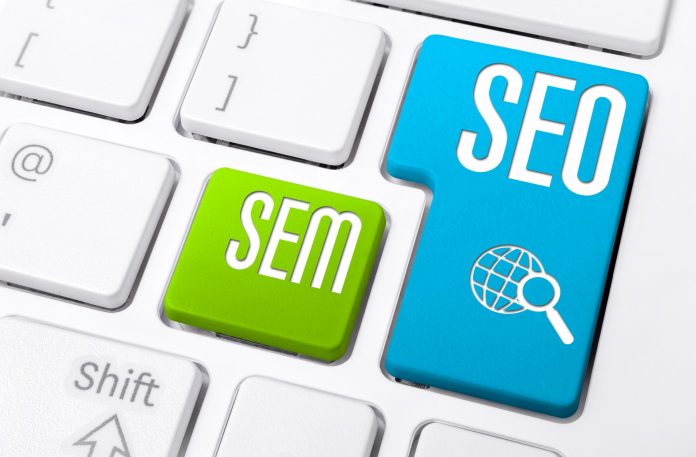As time has passed and marketing has evolved, so have the terms we use as marketers. Two terms that are often used interchangeably without clear understanding of how they are related and how they are different is search engine optimization (SEO) and search engine marketing (SEM). It’s important we understand the difference between the two terms and that they are different.
What is SEO? SEO is increasing the amount of website visitors organically by getting the site to appear on results returned by a search engine. SEM is considered internet marketing that increases a site’s visibility through organic search engines results and advertising. SEM includes SEO as well as other search marketing tactics. While it may seem SEO and SEM are very similar, SEM goes beyond SEO and involves other methods that can get you more search engine visitors like PPC advertising.
Search Engine Optimization (SEO)
The SEO industry is continually changing due to the frequent changes made to Google’s algorithm. But there is always one thing that stays constant: SEO is made up of on-page and off-page (aka “on-site” and “off-site”) activities as its two main pillars.
On-page SEO consists of:
- Optimized metadata – which includes the page title tag, meta description, heading tags, and image ALT tag
- Well-written and optimized page copy that incorporate target keywords
- Simple and well-formatted page URLs with selective keywords
- Optimized page speed
- Social sharing integration within your content
Off-page SEO consists of:
- Creating a high quality, natural backlink profile (having other high quality/authoritative sites link to your site naturally)
- Social signals – which increases traffic to a website from social media sharing
- Attracting attention from social bookmarking sites like Reddit, Digg and Stumbleupon
Search Engine Marketing (SEM)
Search engine marketing is a form of Internet marketing with the use of paid advertisements on search engines like Google. While these advertisements are commonly referred to as pay-per-click (aka PPC) ads, there’s a variety of additional terms used for paid search or SEM activities such as cost-per-click (CPC) ads, paid search ads and paid search advertising.
PPC advertising allows you to target potential buyers through relevant ad copy and keywords that match their search queries. These ads show up in the search engine results pages (SERPs) next to organic listings, which give your company the opportunity to increase the visibility of its web pages, landing pages, blog articles and more.
With SEM, your business is getting more visibility in search engines with both free traffic (SEO) or by paid traffic (paid search advertising).
Through paid search advertising you essentially buy advertising space in the search engine results. So instead of trying to rank higher and get free traffic you pay to appear in front of the searches.
What are some examples of SEM activities?
One of the most well-known advertising agency for PSA is Google Adwords. With the use of Google Adwords you can get your ads to appear in the Google search results and you pay only for the clicks on your ads. While Google Adwords may be the most popular platform for hosting ads, there are some key activities that are needed for successful SEM on the platform such as:
- Launching ad campaigns with a specific audience
- Creating ad groups that consist of target keyword variations
- Setting an ad budget
- Writing relevant ad copy using these selective keywords
- Monitoring metrics like clicks, impressions, click through rates and average cost-per-click
When understanding the difference between SEO and SEM – SEM traffic is considered the most important source of Internet traffic because it is targeted. When searches click on a website from the search results or click on an ad, they are more likely to convert. The relevancy of the displayed web sites and ads makes SEM traffic more valuable than any of the other sources.
The main difference between these two terms is that search engine optimization is simply a component of search engine marketing. As previously mentioned, SEM includes components of paid search, such as PPC (Pay Per Click) and also SMM (social media marketing).
The next time you want to use the terms SEO and SEM interchangeably, remember these terms may work hand in hand but they are not the same term.
Usman Raza is a freelance writer, marketing specialist at SnoringAids and co-founder of Usman Digital Media. When not working, he’s probably spending time with his family. Follow him on Facebook @usmanraza40 and Twitter @usmanintrotech.







